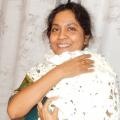Rough Set School
In the midst of the industrial revolution sparked by rapid advancements in Artificial Intelligence, the significance of rough set methods cannot be overstated. These methods are particularly useful for buidling explainable, interpretable and insightful AI models, which is important for finding applications in diverse areas and propelling research in the realm of AI. Therefore, we are thrilled to invite you to the FedCSIS 2023 Rough Set School. Dive deep into a two-day intensive event, encompassing the learning of rough set methods, theory, and algorithms. Learn directly from the luminaries in the field, including Honorary Chairs, Andrzej Skowron and Roman Słowiński, and a stellar line-up of tutorial speakers. Apart from insightful tutorials, you will gain access to FedCSIS keynote talks and panels, rough set and data mining competition conference sessions, delightful lunches, coffee breaks, and an exclusive FedCSIS social event. Finally, you will be awarded a school attendance certificate in collaboration with the International Rough Set Society. Do not miss out on this chance to be part of the next wave of AI pioneers! Check out our strategic partner, QED Software, and the flagship annual conference on rough sets, IJCRS 2023, organized in Kraków soon after FedCSIS 2023.
What is included
The school participants will have also the access to:
- Four rough set tutorials on September 17 and 18.
- Two FedCSIS keynote talks on September 18.
- Two conference sessions (RSTA & Data Mining Competition) on September 18.
- FedCSIS plenary panel on September 17.
- Lunches and coffee breaks on September 17 and 18.
- FedCSIS social event on the evening of September 17.
Every school participant will receive the certificate prepared in cooperation with the International Rough Set Society (IRSS).
Detailed Program
September 17 (Sunday), room 170
| 10:00–11:30 | Rough sets: an introductory overview (Soma Dutta, Davide Ciucci) |
| 12:00–14:00 | Reducts in rough sets: algorithmic insights, open source libraries and applications (Andrzej Janusz, Sebastian Stawicki) |
| 15:00–16:30 | Combination of fuzzy sets and rough sets for machine learning purposes (Chris Cornelis, Henri Bollaert) |
| 17:00–19:00 | FedCSIS opening and panel |
September 18 (Monday), room 170
| 09:00–11:00 | RSTA session including invited talk by Gianpiero Cattaneo |
| 11:30–13:30 | FedCSIS keynote lectures |
| 14:30–16:30 | (in combination with RSTA session): Decision rules in rough set theory (Beata Zielosko, Grzegorz Góra) |
| 17:00–18:30 | Data Mining Competition session |
Tutorials
Rough sets: an introductory overview (Soma Dutta, Davide Ciucci)
The aim of this tutorial is to present a brief overview of the theory of rough sets from the perspective of its mathematical foundations, history of development, as well as connections with other branches of mathematics and informatics. The content concerns both the theoretical and practical aspects of applications. The above mentioned target of the tutorial will be covered in two parts. In the first part we would aim to present the introduction to rough sets and the second part will focus on the connections with other branches of mathematics and informatics. In particular, in the second part, we will discuss the connections of rough sets with logics, topology and algebra, and graph theory (when it comes to mathematics), as well as knowledge representation, machine learning and data mining, and theoretical computer science (when it comes to informatics).
Reducts in rough sets: algorithmic insights, open source libraries and applications (Andrzej Janusz, Sebastian Stawicki)
The theory of rough sets is a powerful mathematical framework for handling imprecise or uncertain information in data analysis and decision-making. At its core, rough set theory introduces the concept of decision reducts, which are subsets of attributes or features that preserve the essential information needed to make accurate decisions while eliminating redundant or irrelevant information. By identifying ensembles of decision reducts, analysts can simplify complex datasets, improve classification accuracy, and gain valuable insights from noisy or incomplete data. These appealing characteristics make rough sets a valuable tool in various fields, including machine learning, data mining, and expert systems.
There have been proposed many extensions to the notion of decision reducts, such as approximate decision reducts, dynamic decision reducts, DAARs, decision bireducts, and many others. The key objective of most of them was to prevent the inclusion of illusionary dependencies between attributes and decision values to the reducts. A lot of research was also committed to the problem of algorithms for the efficient computation of diverse reduct sets. This topic is particularly important from the perspective of practical applications of the rough set theory.
In this tutorial, we focus on the latter aspect of the decision reduct-related research. We discuss various, both, well-known and relatively new algorithms, and consider their specific advantages. We explain in detail selected implementation aspects that are crucial for the efficient computation of many types of decision reducts. We also overview and demonstrate libraries in popular programming languages that allow easy computation of reducts on real-world datasets, including RoughSets library for R and a novel Python language library scikit-rough. Finally, we share the results of a study aiming at the comparison of the computational efficiency of various reduct algorithms.
Combination of fuzzy sets and rough sets for machine learning purposes (Chris Cornelis, Henri Bollaert)
Fuzzy set theory is a popular AI tool designed to model and process vague information. Specifically, it is based on the idea that membership to a given concept, or logical truthhood of a given proposition, can be a matter of degree. On the other hand, rough set theory was proposed as a way to handle potentially inconsistent data inside information systems. In Pawlak's original proposal, this is achieved by providing a lower and upper approximation of a concept, using the equivalence classes of an indiscernibility relation as building blocks.
Noting the highly complementary characteristics of fuzzy sets and rough sets, Dubois and Prade proposed the first working definition of a fuzzy rough set, and thus paved the way for a flourishing hybrid theory with numerous theoretical and practical advances.
In this tutorial, we will explain how fuzzy rough sets may be successfully applied to a variety of machine learning problems. After a brief discussion of how the hybridization between fuzzy sets and rough sets may be achieved, including an extension based on ordered weighted average operators, we will focus on the following practical applications:
- Fuzzy-rough nearest neighbor (FRNN) classification, along with its adaptations for imbalanced datasets and multi-label datasets
- Fuzzy-rough feature selection (FRFS)
- Fuzzy-rough instance selection (FRIS) and Fuzzy-rough prototype selection (FRPS)
We will also demonstrate software implementations of all of these algorithms in the Python library fuzzy-rough-learn.
Decision rules in rough set theory (Beata Zielosko, Grzegorz Góra)
This tutorial extends the contents of two regular papers accepted to the conference and published in the FedCSIS 2023 proceedings:
- Filtering Decision Rules Driven by Sequential Forward and Backward Selection of Attributes: An Illustrative Example in Stylometric Domain (Kamil Jabłoński, Beata Zielosko, Urszula Stańczyk)
- Explainability in RIONA Algorithm Combining Rule Induction and Instance-Based Learning (Grzegorz Góra, Andrzej Skowron and Arkadiusz Wojna)
- Moreover, it refers to the fundamental rough set based rule induction methods and it provides an overview of their applications.
Tutorial Speakers

Bio: Henri Bollaert received his Master's degree in Mathematics from Ghent University (2022). He is currently a PhD student at Ghent University, funded by the BOF grant and working under the supervision of professors Chris Cornelis (Ghent University), Salvatore Greco (University of Catania) and Roman Słowiński (Poznań University of Technology). His research is mainly focused on granular approximations for hierarchical rule-based systems.

Bio: Davide Ciucci is full professor at the University of Milano-Bicocca, he holds a PhD in Computer Science from the University of Milano and the HdR (habilitation) from the University of Toulouse III. He is fellow of the International Rough Set Society and he has been its president in the years 2019-20. His research activity is about uncertainty in knowledge management and machine learning and he wrote more than 120 papers on these topics. He is senior area Editor of the International Journal of Approximate Reasoning and associate editor of Computational and Applied Mathematics.

Bio: Chris Cornelis obtained his M.Sc. (2000) and Ph.D. (2004) in computer science from Ghent University, where he is currently an associate professor. His main research interests include fuzzy sets and rough sets, and their application to domains such as machine learning and sentiment analysis. He is an area editor for several SCI-listed journals such as Information Sciences, IEEE Transactions on Fuzzy Systems and International Journal of Approximate Reasoning, and currently acts as the vice president of the International Rough Set Society (IRSS).

Bio: Completed doctoral research from University of Calcutta, in India. Has been associated as post doctoral researcher in the Institute of Mathematical Sciences, Chennai, India and later in the Faculty of Mathematics, Informatics, and Mechanics, University of Warsaw, Poland. Presently is associated as an adiunkt in the Department of Mathematics and Computer Science, University of Warmia and Mazury in Olsztyn. Awarded habilitation from IBSPAN. Research interest includes rough sets techniques in data mining, interactive granular computing, logics (abductive and deductive) dealing with imprecise and inconsistent information.

Bio: Grzegorz Góra is a member of the Order of Discalced Carmelites. He graduated from the University of Warsaw with master's degrees in both computer science and mathematics before starting his PhD studies. He created a machine learning system and presented it at conferences. Years later, published comparison analyses showed that the system appeared to be very successful. He worked on projects involving artificial intelligence at NuTech Solutions company and was also employed by the Polish Japanese School of Information Technology. In the third year of his PhD studies, he joined the Order. He eventually went back to finishing his doctoral dissertation years later. His initial research focused on the creation of a method supporting the diagnosis and treatment of newborns with acute respiratory failure. This research was partially presented in a Fundamenta Informaticae publication. His later work on the dissertation was focused on the development of a system for analysis of imbalanced data. He also obtained some theoretical results related to explainability of his previously developed machine learning system. Grzegorz Góra received Phd degree (with distinction) in 2022 from the University of Warsaw. His research interests include classification, lazy learning, instance-based learning, k nearest neighbours, imbalanced data, induction of decision rules, rough sets, explainability and data mining.

Bio: Andrzej Janusz is an active and experienced researcher in fields related to data exploration, machine learning, and artificial intelligence. In 2014, he received PhD degree in Computer Science from the University of Warsaw in Poland, where he holds the position of Assistant Professor. He also cooperates closely with QED Software and QED Force companies as the Cheif Data Scientist. He participated in R&D projects funded by EU and NCBR in Poland, related to topics such as monitoring of safety conditions in hazardous environments, video game data analytics, active learning, and explainable artificial intelligence. Andrzej has also cooperated with scientists from academic centers in Poland and abroad. His publication record consists of over 70 articles on topics related to applications of machine learning techniques. He co-founded KnowledgePit.ai - an online platform where he regularly organizes open data science competitions aiming at solving complex real-life problems.

Bio: Sebastian Stawicki is currently working towards a Ph.D. degree in Computer Science in the Faculty of Mathematics, Informatics, and Mechanics at the University of Warsaw, Poland. He received M.Sc. degrees in both Mathematics and Computer Science from the same institution. His ongoing research focuses on granular computing, feature selection, and rough set theory. Throughout his professional career, he has acquired valuable experience working on a range of projects, including DB engines, data processing, and web development. Over the past several years, he has been affiliated with QED Software, concentrating his efforts on the development of machine-learning-driven solutions and applications. He also participated in several R&D projects funded by NCBR in Poland.

Bio: Beata Zielosko works as an Associate Professor at the Institute of Computer Science, University of Silesia in Katowice. She is a deputy director of the Institute of Computer Science and head of the research group dealing with decision rules in knowledge discovery and representation. She obtained her habilitation in 2017, and PhD degree in 2008. From 2011 to 2013, she worked as a Senior Research Scientist at King Abdullah University of Science and Technology, Saudi Arabia. She is a member of the International Rough Set Society, KES International and Polish Artificial Intelligence Society. Beata Zielosko is a co-author of four research monographs published by Springer and over 60 papers published in journals and international conference proceedings. She is also a co-editor of the IJCRS 2017 proceedings and co-editor of an international monograph on feature selection. Her research interests include pattern recognition and classification, induction of decision rules, feature selection and reduction, methods of rough set processing, and data mining.
Chairs
Honorary chairs
- Andrzej Skowron (Systems Research Institute, Polish Academy of Sciences, Poland)
- Roman Słowiński (Poznań University of Technology, Poland)
Organizing chairs
- Piotr Artiemjew (University of Warmia and Mazury in Olsztyn, Poland)
- Dominik Ślęzak (University of Warsaw & QED Software & DeepSeas, Poland / USA)
School registration fee
The fee is 200 EUR.
Please register here.
Free participation
- Every registered participant of FedCSIS 2023 can attend the Rough Set School without additional costs.
- Moreover, thanks to the fact that QED Software is the strategic partner of both FedCSIS 2023 and IJCRS 2023 (the flagship annual conference on rough sets), every registered participant of IJCRS 2023 can attend the Rough Set School without additional costs as well.





